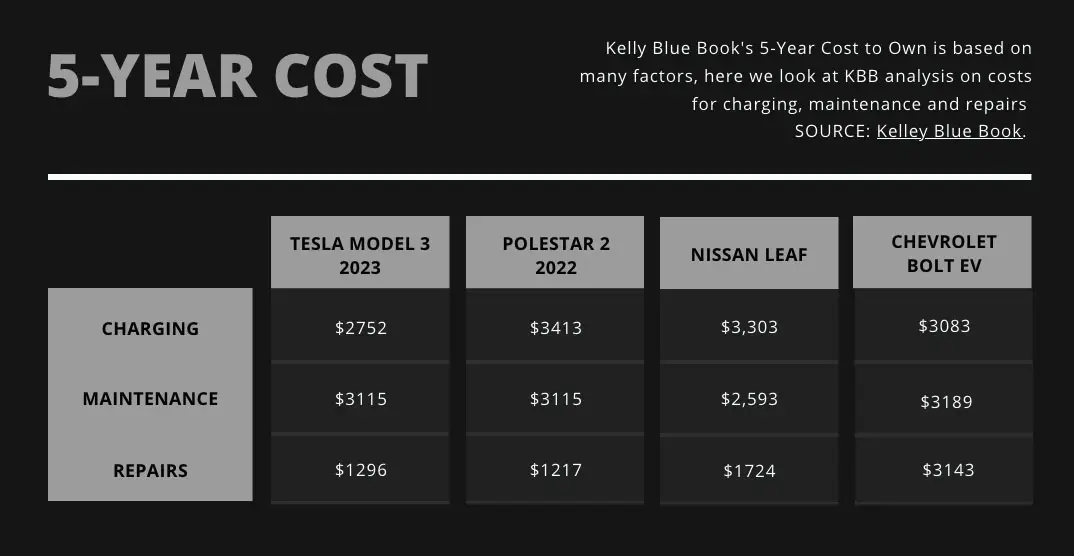5 Reasons to Switch to an Electric Vehicle (EV)
07/24/2023 / Gail Alfar
Have you ever considered making the switch to an EV from a gas vehicle like so many other drivers have done in the past few years? Are you thinking you may buy or lease a Tesla Model 3 or another electric vehicle?
Driven by environmental concerns and advancements in technology, electric vehicles (EVs) have experienced a surge in popularity and widespread adoption in recent years as more and more people make the switch. Let’s look at the top 5 reasons to drive an electric vehicle and why you should make your next vehicle electric.
Driving an EV Means No More Stops at the Gas Pump
Let’s face it - pumping gas isn't fun, and waiting in line at a gas station can be awful.
With an electric vehicle, you can charge at home overnight and wake up ready to hit the road with a full battery; just plug your car into a wall socket (240 volt preferred) and let it sit on the charger.
How Much Does it Cost to Charge an Electric Vehicle?
The cost you will pay to charge your EV will depend on how often you drive, the time of day you charge, and what charging stations you visit. Let’s compare the cost of a trip in a gas car versus an EV. So, different owners will have different charging costs based on usage, but here is an example.
Cost Comparison of Gasoline vs EV Car Charging:
If you fill your gas tank up in Bastrop, Texas, to drive to Baytown near Houston (186 miles) at a cost of $3.11/gallon in a vehicle with a 30 mpg fuel efficiency, you will pay about $20.
With an EV, you have options:
As a Tesla Model 3 driver, I have plenty of experience with long-distance travel and charging in EVs. Supercharging my Tesla Model 3 in Bastrop at 6:00 am, at a cost of $0.18 per kWh, would amount to approximately $10 for a sufficient enough charge to reach Baytown.
If I slow charge at home during the night when utility rates are low, I will likely pay approximately $0.07 per kWh, so it would only cost about $4 to reach Baytown.
Supercharging after 8:00 am for the trip would cost me $0.37 per kWh, so it will cost about $20 for enough charge to reach Baytown.
Let’s look at another make and model for comparison’s sake. The Ford Mach E, as an example, would cost the same to charge at home, and could charge at an EVgo Charging Station. Prices at EVgo vary and depend on the time of use. EVgo’s website says rates are from $0.34 per kWh to $0.22 per kWh with a subscription, meaning the Mach E would have similar costs to the Tesla for the trip.
Do Not Fear EV Range Anxiety!
Many people avoid switching to an ev because they are worried about running out of power during their trip. However, as the EV charging infrastructure continues to grow and partnerships between different manufacturers develop, you no longer have to worry near as much about making sure you have range between chargers.
The Unbeatable Thrill of Instant, Silent Acceleration in an EV

Unlike combustion engines that generate noise when accelerating, EVs offer a serene driving experience with minimal noise, allowing you to appreciate the sound of the tires gliding on the road and the gentle wind resistance. I test-drove a Plaid Model S and loved the acceleration as a novelty. The vehicle can do 0-60 mph in 1.99s. And if that’s not crazy enough, the new Tesla Model S track package will start to be sold in July 2023 and supports “high-speed stability, maximum cornering force and repeatable stopping power during high-performance driving while unlocking a top speed of 200 mph.”
With a 0-60 time of 3.1 seconds, the Tesla Model 3 that I drive is plenty fast for daily driving, and I love how quiet it is.
Let’s compare acceleration for three similar EVs
The new Ford Mach-E 2023 GT Performance Edition can go from 0-60 mph in 3.5s.
The Tesla Model Y Performance also goes from 0-60 mph in 3.5s.
Polestar’s Performance Package goes from 0-60 mph in 4.6s.
This works out to nearly half the average acceleration time of most gasoline cars currently on the market!
Not only is an electric motor quieter and faster, but it also has fewer parts, is less complicated to build, and, therefore, less likely to need repairs. I believe these are all excellent benefits that should be factored into your decision.
Electric Vehicle Ownership Costs Compared to Gas Cars
Electric vehicles generally have lower maintenance requirements compared to combustion cars. You will need to rotate the tires and top off the windshield wiper fluid. Over time, as with any car, tires will need to be replaced, brakes serviced, and parts replaced (headlamps, taillights, suspension components, etc.)
When deciding to switch to an EV, I recommend comparing estimated maintenance costs to a gasoline vehicle. Over 5 years, Kelly Blue Book estimates a gasoline-powered Honda Accord will cost $3460 to maintain, $6965 for fuel, and $1667 for repairs.
5-year EV Ownership Costs
This chart compares 5-year estimated costs for charging, maintenance, and repairs for the Chevy Bolt, Nissan Leaf, Polestar 2, and Tesla Model 3.

Most EVs offer lower ownership and operational costs compared to gasoline counterparts, and the Federal Government provides additional money-saving opportunities through various incentives.
Tax Credits and Incentives
Tax credits for electric vehicles can give you savings of as much as $7500.
Clean Technica recently published details on EVs that qualify for the full Federal $7500 tax credit.
The updated list, as of May 3, 2023, includes Volkswagen ID4, all Tesla Model 3 and Y except the SR RWD, Cadillac Lyriq, Chevy Bolt, and Ford F-150 Lightning.
These incentives completely eliminate the cost of ownership for the first five years for some of these vehicles. That alone is a pretty great reason to go with an EV.
Here’s the current list of all the models eligible for the full incentive from the US Dept. of Energy.

Screenshot from US Department of Energy’s Fuel Economy website taken July 24, 2023.
EVs Offer Zero Emissions for a Healthier Environment
EVs are better for the environment and our health. They help us, personally, fight against climate change and air pollution all over the world.
The US Environmental Protection Agency published five facts to educate people about EVs and our environment and to help dispel several myths such as 1) “Electric vehicles are worse for the climate than gasoline cars because of the power plant emissions,” and 2) “Electric vehicles are worse for the climate than gasoline cars because of battery manufacturing.”
The EPA explains there are no tailpipe emissions from electric vehicles. While carbon pollution may be caused by generating the electricity needed for EV charging, the amount differs widely depending on the way local power is produced. Carbon pollution can be eliminated entirely if the power source is from renewable energy sources such as wind or solar. Even accounting for electricity emissions from burning coal or natural gas, research shows that an EV is typically responsible for lower levels of greenhouse gas than an average new gasoline car.
The EPA also acknowledges that the manufacturing of an electric vehicle battery might currently generate more greenhouse gas (GHG) emissions than constructing a gasoline car. That is because it currently takes quite a bit of energy to manufacture an electric vehicle battery. However, overall GHG emissions linked to the manufacture, charging, and driving of an EV are usually below those of a conventional petrol car during its lifetime. Plus, battery technology is moving quickly and we hope to soon see much more efficient (and affordable) EV batteries.
Liz Hurtado, of Moms Clean Air Force and mother of 4 kids spoke at the EPA about how clean air helps make her kids healthier,
“Cutting pollution from cars and trucks drastically reduces trips to the emergency room due to asthma attacks and it also reduces the number of older adults who struggle with lung disease and other chronic conditions. These reductions greatly improve our families’ quality of life. Strong tailpipe standards will accelerate our transition to zero-emission vehicles resulting in cleaner air and less climate pollution.”
Watch Liz and others talk about why we need clean air in all neighborhoods.
Should I Switch to an Electric Vehicle?
Whether you have been considering a switch to an electric vehicle or are just beginning to research, this guide will equip you with valuable insights to make an informed decision for your next vehicle. I am a little biased, of course, but I encourage you to make the switch to an EV. Not just because I drive one and write about them, but because I think you’ll genuinely love it!
Tesla Supercharger Image Courtesy Tesla, Inc.
Posted in
Tagged



